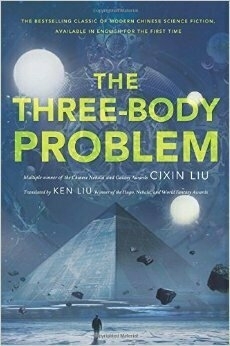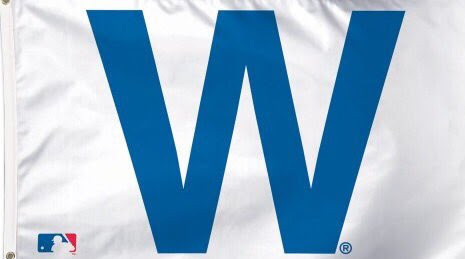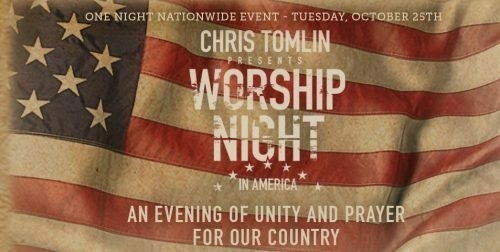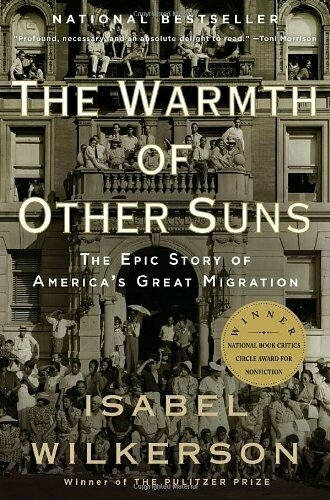Category: Longform
You are viewing all posts from this category, beginning with the most recent.
Recommended reading: The Three-Body Problem
I’ve got a soft spot in my heart (and on my reading list) for science fiction. It probably started when I was reading Michael Crichton as a 12-year-old. OK, Crichton might not be the first one you think of when I said “science fiction”, but Crichton’s mix of legit science into thriller novels was an appealing first taste. (Jurassic Park? eh, fine. The Andromeda Strain? Better.)
There’s an awful lot that gets passed through in the name of “science fiction” these days, though. For some incomprehensible reason, our libraries lump sci-fi and fantasy together, which means you’ve gotta be careful or instead of picking up a hard-science space opera you’ll end up with some multi-volume epic starring sexy telepathic cat people on a far-away planet that resembles nothing so much as medieval England. But I digress.

I started with Crichton, but progressed quickly to Asimov and Arthur Clarke. Later on I enjoyed Stephen Baxter’s Manifold trilogy and some of Robert Sawyer’s stuff. I still browse the New Sci-fi shelf at the library on a regular basis, but most of the time when I pick up an interesting-looking volume, it turns out to be Volume 17 of some big space opera, and ain’t nobody got time for that.
A couple years ago, though, The Incomparable podcast devoted an episode to Hugo Award nominees, and somebody brought up Cixin Liu’s The Three Body Problem. I was unacquainted with Liu, but found that this prolific Chinese author was finally getting a book translated into English. And what a book.
The Three Body trilogy continues with The Dark Forest and wraps up with Death’s End, the translation of which just released this fall. I finished reading Death’s End last night and wow, what a epic, sweeping trilogy. It begins as a current-day encounter with an alien race of such advanced technology they can hardly be understood, and traverses time and space to some distant future where the universe collapses in on itself only to explode again in another Big Bang.
Liu digs in to communication via gravitational waves, the survival strategies of intergalactic civilizations, and lightspeed travel, while telling a story expansive in spacetime in a way that hearkens back to Clarke and Asimov. The English translations are excellent, and while the books aren’t short, they kept me engaged through the final page.
If you’ve stuck with this post this far, The Three Body Problem might be one you want to pick up.
#FlyTheW

I’ve enjoyed baseball for as long as I can remember. I have fond memories of attending my first baseball game (the Omaha Royals) when I was probably 7, and of watching Game 7 of the 1985 World Series (Royals win in 7!) when I was 8. I followed the Rangers when I lived in Texas in high school and college, and enjoyed getting to see Nolan Ryan pitch and attending the 1995 MLB All-Star Game.
Then I moved to Iowa, and with a bunch of new friends who were Cubs fans, I became a Cubs fan. Little did I know what I was getting myself into.
I remember sitting in a friend’s basement watching the famed Bartman game in 2003. They were so close to the World Series, and then collapsed. Again.
Then came 2016. The Cubs started off hot and stayed that way. I followed them more closely than I had in previous years, and my kids were now old enough to enjoy the games themselves. That the Cubs would make the playoffs seemed a foregone conclusion; the question was could they finally go all the way?
I told the girls that if the Cubs won the World Series, everybody would be getting new Cubs swag. As the playoffs progressed, I wondered a bit whether they were cheering the Cubs more to see them win, or to get new t-shirts. But cheer they did.
I pretty much lost faith around game 4 of the World Series. The Cubs were down 3 games to 1, and looked terrible doing it. I refused to watch Game 5. I didn’t want the stress. My wife turned on Game 6 after the Cubs took a lead. And then came Game 7.
You can’t not watch Game 7. And you can’t really send the kids to bed for it, either, even if it is a school night. We were feeling pretty good about it when the Cubs had a lead early. Addison was painting Cubs artwork in the basement during the middle innings. Then the Indians tied it up and my heart was in my stomach. Here comes the collapse, I thought.

Our youngest daughter finally gave up trying to stay awake about 10:30 and went to bed. When the game went to extra innings and a rain delay at 11:00, we sent the older two to bed. But 15 minutes later when the game resumed and the Cubs got a couple hits, they heard me yelp at the TV and came rushing back in to watch the game.
So at 11:30 on a school night, the four of us sat in bed and counted down the last three outs for the Cubs to win the Series. I hope it’s a memory that sticks with them as long as my memory of Bret Saberhagen coming off the mount to talk to George Brett prior to getting the final out in 1985.
Then this weekend we went shopping.

Maybe next year…
…they’ll win it again.
#FlyTheW
Bullet Points for a Tuesday Afternoon
- After traveling two out of the last three weeks for work, it’s good to be home.
- It’s been really fun having football season start up this past few weeks, but now that the MLB playoffs are starting I’m likely gonna ignore football as long as the Cubs are still in it.
- There is a huge amount of Cubs gear for sale in all the stores around here.
- I’ve been saying that my goal is to not buy another piece of Cubs gear until I can buy one that says “World Series Champions”. Here’s hoping that means I’ll get to buy some before too many more weeks/years go by.
- Please don’t jinx it please don’t jinx it please don’t jinx it #GoCubsGo
- On reflection, it’s been an odd year for me music-wise: I don’t think I’ve bought an album or really sunk my teeth into anything new all year. The last record I bought and really fell in love with was the Hamilton Original Broadway Cast recording last fall.
- Hamilton. Chicago. March. Can’t wait.
- It’s possible that part of my reason for buying less music is that I’ve had a Spotify subscription this year. I don’t listen to it a ton, but it’s great for taking a listen to some new album w/o having to go purchase it or just listen to 30-second samples first.
- Can we just get done with the election already? The presidential candidates have been in Iowa since at least August 2015. This is far too long.
Now back to your regularly scheduled programming.
A Little Plastic Surgery for the Body of Christ
As a musician and long-term volunteer worship leader, I have plenty of opinions when it comes to church music. So this morning when I came across a job posting for a Music Director position I was brought up short. And boy, do I have opinions.
Here’s the job posting. On The Gospel Coalition website, it’s for Paramount Church of Jacksonville, Florida. It’s hard to tell from their church website how large their church is, but there appears to be one paid staff pastor and about a dozen deacons.
So here’s the job posting, which comes in 3 sections. I’m bolding the things that stick out to me:
A. General Description of Position
Paramount Church is a gospel-centered church in Jacksonville FL. The Director of Music is responsible for designing and implementing a style of music that is contemporary and band-driven yet not contemporary for the sake of novel, innovative creativity. The ideal candidate for this position will be committed to the centrality of the gospel in all things and possess a solid knowledge of and commitment to the historic Christian worship of the church. The Director will coordinate music plans with the Preaching/Teaching elder, and recruit, direct, and train a team of volunteer musicians. Significant musical experience in performing and directing a contemporary band along with experience in songwriting and production is ideal.
I’m still trying to figure out what “not contemporary for the sake of novel, innovative creativity” means. How exactly do you have un-novel, non-innovative creativity? It is OK to be contemporary as long as we’re copying others and not doing our own thing? But that’s just a small quibble.
“Significant musical experience in performing and directing a contemporary band along with experience in songwriting and production.” That’s a lot. Wow.
B. Position Duties and Responsibilities
- Plan and implement Trinitarian, gospel-centered music (Col. 3:16) for Sunday worship services, and special services as required, in consultation with the Elders
- Recruit, train, and rehearse members of the music team.
- Disciple music team members in a gospel-centered, historic worship paradigm
- Coordinate with A/V team regularly to assure quality sound and video/visuals for each presentation and oversee training of A/V volunteers
- Attend weekly meetings with the Elders and Leadership Team.
OK, that’s fairly straightforward. Aside from the “gospel-centered” buzzwords that add more branding than meaning any more, that sounds like a standard music director position.
But here comes the big list. Hold on tight!
C. Position Qualifications
- Committed to definitive Nicene orthodoxy and gospel-centeredness in doctrine, life, and music
- Possess a solid understanding of and commitment to historic Christian worship
- Band-driven rather than orchestral-driven style of music
- Must be able to incorporate strings, percussion, and other instruments into contemporary-band driven arrangements
- Must be able to play piano and/or guitar in a contemporary band setting
- Minimum of bachelor’s degree in music and/or 5 years’ related church or industry experience. Possessing an MDiv or MA in theology is ideal.
- High-level of overall musicianship
- A builder/self-motivated/entrepreneurial spirit
- Sanguine stage presence
- Experience in leading corporate worship, and knowledge of directing, orchestrating, and coordinating various instruments in a band
- Ability to work with and train vocalists in singing of parts
- Ability to incorporate backing tracks and loops into regular Sunday and special services
- Leadership ability and ability to work with and inspire volunteers
Holy cow. Really? Must be able to incorporate strings, percussion, other instruments into a contemporary band. Oh, and also incorporate backing tracks and loops. And also be able to direct and orchestrate the instruments in the band.
And what the heck is a “sanguine stage presence” anyway?
But here was the kicker to me:
(Part-Time, pay commensurate with experience)
This is a PART-TIME position.
That’s right, you need to be able to write songs, orchestrate, build and lead a team, plan and arrange services including tracks and loops, rehearse, perform, meet with the church leadership on a regular basis, and in the best case would have an MDiv. For a part-time position.
Now, maybe I’m just 39 and out of touch, and there will be a hundred qualified candidates beating down the door of Paramount Church to audition for this position. But really? Are these wise expectations for church music leading, or wise leadership burdens to place on a part-time leadership position?
I fear that so often in the evangelical American church we have set our music performance and production standards so high that the focus is on the production more than the actual act of congregational worship, and that none save the already-professional musicians need apply to participate as a part of the worship bands.
Job posts like this feel like we’re signing the Body of Christ up for plastic surgery when what we really need is just to get it to the gym for regular workouts.
The church should be the incubator for and encourager of the young musicians coming up in it. I am biased here but can speak from a lifetime of having had that experience in the church. From singing special music with my dad and brothers when the youngest was so small he had to be held so he could be seen above the pulpit, to playing Bach for Sunday night offertories when I was just learning the piano, to leading worship teams in college when I was not nearly experienced enough, my musical development has been the product of a multitude of churches that didn’t want professionalism so much as service.
Yes, some standards are appropriate. Some talent is needed. But let’s not set our production standards so high that none but trained professionals can meet them. And let’s not set our job expectations so high that we eliminate the talented amateurs from the conversation. The church can and should be developing these leaders from the inside. To always be searching for professionals from the outside is both unhealthy and unsustainable.
Puttting the work into music in church
I made an observation on Twitter yesterday that I want to flesh out a little more.
[twitter is gone, sorry. best guess as to what I was going on about by reading the paragraphs below.]
Now, my experience is limited to the handful of evangelical churches I’ve attended over the years. But in general I observe that we focus a lot on learning when it comes to doctrine and practice. Our pastors preach long, well-prepared and often academic sermons. We encourage Bible studies and recommend books from the beginner level to very advanced levels for study in all theological areas.
When we get to music in our worship services, though, we very often have a different approach: our music is very often chosen based on what is familiar to people from listening to Christian radio. Those old hymns with lots of big words and thick doctrine? Confusing. Singing parts out of hymnals? Nobody knows how to read music anymore. Why confuse them with the notes?
When we lose a vision for singing in church as a means of embedding truth in the hearts of each believer, we can be content with going for whatever is easy and familiar. When the goal is to entertain and get people “feeling” the worship before the pastor comes to preach, we are best served by grabbing whatever they’re singing along with on the radio this week and having them sing it along with the praise band on Sunday.
Christian singing can be so much more than entertainment, though. Songs use music to ingrain words into our minds and hearts, and the great hymns of the Christian faith are full of truth to inspire, challenge, and comfort believers. Efforts to teach those hymns and how to sing them will result in a life-long benefit to those who will remember the truths in them long after they’ve forgotten every Christian book they’ve read.
Not all hymns are old, not all old songs are deserving, and there is still a place for singing entertaining songs. But favoring easy entertainment over formative singing will leave the body anemic and lacking.
Worship Night in America
This showed up in my Twitter feed over the weekend:
“Worship Night in America”. To quote my friend Chrissy: “NOPE. Big, big NOPE.”
I dug into Tomlin’s website for more details. Billed as “An Evening of Unity and Prayer for Our Country”, it features Tomlin along with musicians Matt Redman, Phil Wickham, and Matt Maher, along with speakers Max Lucado and Louie Giglio.
Event sites have been set up at theaters across the country - there are two listed in Iowa including one here in my hometown of Cedar Rapids - with tickets on pre-sale for $12. Per the FAQ, these sites won’t actually host the event unless some minimum number of tickets are sold in advance. For an additional $3.99 ($15.99 total) you can get a CD or digital copy of Chris Tomlin’s new album along with the ticket.
Also from the FAQ: even though it’s a “one-night-only” event, this is not some sort of live simulcast. “Worship Night in America was created by Grammy-award winning artist Chris Tomlin”, and “the event was recorded at Madison Square Garden and edited for theaters and non-theatrical venues.”

Where do I even start?
The Title
I gotta admit, when I hear “Worship Night in America”, the first thing I think of is “Football Night in America” - the tag line NBC uses for Sunday Night Football - and then quickly to “Hockey Night in Canada”. Hey folks, let’s hype a trendy event! Who’s got an idea for a name?
The Medium
First it started with video venues for churches - some local live staff, sure, but we’ll pipe the popular preacher in from some other campus. Then came “online church” - just stream the service on your computer, submit your prayer requests via a web form, and tithe with your credit card, all from the comfort of your jammies and your couch! Now we have “worship night”, where we line up to sit in a theater and watch a pre-produced event from Madison Square Garden featuring only the hippest musicians and high-octane speakers.
Virtual ain’t church, folks. Don’t get me wrong - I see a huge value in (and have personally benefited greatly from) friendships cultivated primarily online. But the body of Christ is called to assemble in person, and there’s a vast amount of encouragement, accountability, and support that can only really come with in-person assemblies. We’re fooling ourselves if we try to argue otherwise.
The Politics
Any other year, I’d be 95% certain that this sort of event, scheduled one week before the elections, was going to be leveraged to push attendees hard toward voting for a certain sort of Republican candidate. This year I’m not quite so certain. The FAQ says that the event “is not tied to any candidate or political affiliation”, which is good. I guess I’m cynical enough to assume that a flag-waving prayer-and-worship evangelical event the week before the election is another “If my people who are called by my name will GET OUT THE VOTE then I will heal their land” sort of event. I hope they prove me wrong.
The Money
It’s no accident that the new Chris Tomlin record is slated to come out the same week as this event, and that attendees can get a copy for only $4 when bought in conjunction with the event ticket. In the same way authors can hit the bestseller list by engineering the sale of lots of copies of their book, musicians can hit a similar list with first week sales. So, 95 event sites listed at the moment. Say they each sell 200 tickets, and 50% of the ticket buyers also get a CD. That’s nearly 10,000 copies of Tomlin’s new album sold that week. That’s not insubstantial.
Not that there’s necessarily anything wrong with marketing and wanting to sell lots of records… but attendees should be aware that this “evening of unity and prayer” also looks to be a pre-produced marketing event to sell a lot of records.
So here’s a thought
If you want an evening of unity and prayer leading up to election day - and Lord knows we could use both - invite some people from various churches in your community to get together. Make sure you invite some who have a different skin color or accent than you do. Have somebody bring along a guitar. Sing some songs you all know. (Or learn some of each others’ songs!) Pray for each other and for your community. Listen to each others’ stories. Make new friends.
That will be a productive step toward building Christian unity in your community, far more than plunking down into a theater seat and singing along with the screen.
A couple recent podcast episodes worth recommending
I listen regularly to a handful of podcasts, and irregularly to a couple handfuls more. This past week I’ve run across a couple episodes that I feel are particularly worth recommending:
Radiolab Presents: More Perfect: “The Political Thicket”.
More Perfect is a short-run podcast (they plan to produce 7 episodes) by the wonderful folks at Radiolab that is focusing on the US Supreme Court. The Political Thicket is an episode about the 1962 Baker vs. Carr decision in which SCOTUS first really got involved in political decisions - in this case, by forcing Tennessee to reapportion legislative districts in a way that provided equal representation for both whites and blacks. Fascinating stuff.
Fresh Air: Christopher Eccleston On ‘The A Word,’ and Rethinking His Faith After ‘The Leftovers’
Fresh Air is hardly a novel or surprising podcast recommendation, but this Terry Gross interview with actor Christopher Eccleston was superb. I’m really only familiar with Eccleston from his season playing the lead in Doctor Who, but after this interview I also really want to catch up with The Leftovers.
Eccleston talks frankly about his wrestling with faith, talking about how he’s moved from an angry atheism to a more open viewpoint, and how the Biblical book of Job has loomed large in playing his character in The Leftovers. He also talks very personally about his struggles in relating to and caring for his father who suffered from dementia for 15 years before passing away in 2012.
A really fantastic interview - Terry Gross is of course a premier interviewer, and Eccleston is a very engaging and forthcoming subject. Worth 40 minutes.
Finished reading: The Warmth of Other Suns by Isabel Wilkerson

I haven’t been posting on every book I’ve read, but wow, this was a good one.
The Warmth of Other Suns by Isabel Wilkerson is a history of what she calls “America’s great migration” - the movement of African Americans from the south to northern, midwestern, and western urban areas between 1930 and 1970. She follows three primary characters through their journeys from the Jim Crow south to new jobs and lives in New York, Chicago, and Los Angeles.
Wilkerson weaves together their stories with the bigger picture of a changing country, where racial discrimination stubbornly persisted (persists?) even in states where the Jim Crow laws didn’t exist.
Given the unrest in the country at present this was a timely read. It struck home more than history often does because its time frame was so close to the present. It’s easy for me to think of even the 1960s as an old, black-and-white time; each of the characters Wilkerson follows, though, live at least into the 1990s… which I remember well.
Our history in this country is short, and this book was a good reminder that the racial tension we have today isn’t far removed from a long history of racism and slavery. We have so much yet to learn.
Finished reading: compendium 4
I’ve hit a bit of a slowdown in my reading as the summer got busy, but have still made some progress on the book pile…
- Porcelain: A Memoir by Moby - Interesting stories, but what a sad trajectory. From the struggling musician trying to make his way in the world to an addict who makes light of being drunk and missing his mother’s funeral, and brags about getting sexual favors from models in strung-out parties. Here’s hoping God has a third act in plan for this guy’s life.
- Shaker by Scott Frank - A not-particularly-memorable detective novel.
- The Fatal Shore: The Epic of Australia’s Founding by Robert Hughes - How awful was the culture around dealing with criminals in the 1700s in England? Awful. Maybe worse. First eye-opening, then disturbing, then almost tiresome… you can only read so much about how horrible things were for everyone (prisoners, guards, and aboriginals alike) without having to just stop.
- Hamilton: The Revolution by Lin-Manuel Miranda - notes and pictures about the Broadway production. Love it.
- The Love Affairs of Nathaniel P. by Adelle Waldman - Wanna hate a self-absorbed protagonist? This is the book for you.
- You Are What You Love: The Spiritual Power of Habit by James K. A. Smith - A lay-level treatment of his big Kingdom book. Makes me want to go join a church that’s serious about catechesis and liturgy.
- Whose Body? (Lord Peter Wimsey series, Book #1) by Dorothy Sayers - I’d never heard of this series before, but a couple librarian friends recommended it, and book 1 was enjoyable. Currently reading book 2.
- Humans of New York: Stories by Brandon Stanton - continues the remarkable Humans of New York photo series, but enhanced with comments and stories from those photographed. A wonderful (and sometimes sobering) celebration of the joyous diversity of the human experience.
- Infomocracy by Malka Ann Older - an interesting little novel postulating a future where an all-reaching Information service drives micro-democracies. As ever, the question is this: who watches the watchers?
In addition to the second Sayers novel, I’m slowly working my way through Volume 1 of Pelikan’s church history series and more quickly devouring Isabel Wilkerson’s excellent The Warmth of Other Suns. More on that later.
On Watching the Tonys for the First Time
Last Sunday night I sat down with my family and watched the Tony Awards ceremony. (The Tonys are given out yearly to award the best in musical and stage theater, similar to the Oscars for film or the Grammys for music.)
I’d never watched the Tonys before. I’m usually an Oscars guy, and every once in a while I’ll watch the Grammys (or at least that year when Arcade Fire was up for a bunch of awards), but the Tonys? Nope.
Then Hamilton came along, and we had an excuse. It’s been a bit of an obsession in our house, so an opportunity to see a performance from the show, and to see if it would win all the awards? Gotta watch it. (How much of an obsession, you ask? In our house, now, if the girls want to know the time, they will precisely ask “what is the time?”, because they know if they ask “what time is it?”, at least one member of the household will reply “showtime!”, which is invariably followed by “like I said…”. Every time.)
In retrospect I’m not sure why I follow the Oscars every year. I follow film (via podcast far more than I watch it. I guess I get a kick out of seeing the celebrities off the big screen, hearing the speeches, being able to discuss the ceremony the next day, whatever. But the Oscars ceremony has a history of being pretty awful. It runs long. The hosts are lame, or wooden, or both. The patter between presenters is forced. Depending on the year you might get a good musical number or two - the song from Selma brought down the house last year - but otherwise… it’s more an event than a great show.
Enter the Tonys. What a fantastic awards show! Host James Corden was funny (and very talented!) without dragging any jokes out too long or being obnoxious. The show moved along at a good clip, full of musical numbers from the nominated musicals. Leading up to commercial breaks, a cast from one of the nominated shows would move to a little outside stage on the street to perform a quick bit from some other classic Broadway show. (This led, charmingly enough, to Sir Andrew Lloyd Webber playing the tambourine to accompany Steve Martin on the banjo for one song. Not bad, Sir Andrew. Not bad.)
And the performances. Wow, the performances. Carmen Cusack belting it out in a number from Steve Martin and Edie Brickell’s musical Bright Star. Audra McDonald singing and dancing (while 4 or 5 months pregnant!) in Shuffle Along. The big wedding dance number from the revival of Fiddler on the Roof. And The Color Purple. Goodness me, The Color Purple.
Having tuned in to see Hamilton, what I found along with it was a theater full of incredibly talented people who, to all appearances, really love the music and dance, and who even between show casts share a great camaraderie. In contrast to the cool, cynical detachment often seen at the Oscars, the Tonys were enthusiastic, joyous, and intense.
And then there were moments of brilliance like Lin-Manuel Miranda’s acceptance speech, which he provided in the form of a sonnet:
On the night after the horrific mass shooting in an Orlando nightclub, the Tony Awards show both acknowledged the loss and provided, if not some healing, at least a respite from the pain - an embrace saying we are in this together and we will get through it.
And when the Hamilton cast came back on stage for the closing number, and a good chunk of the audience stood up and sang along with them, the joy in their voices, faces, and dancing bodies shouted out that Miranda’s lyrics hold a timeless truth.
“Look around, look around, at how lucky we are to be alive right now.”